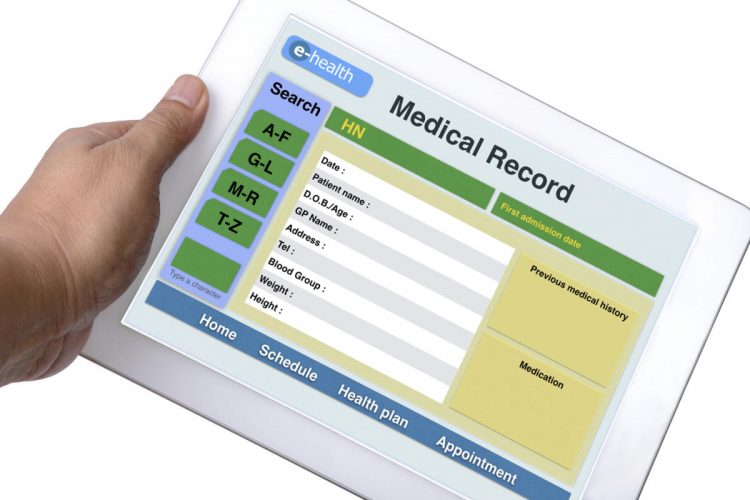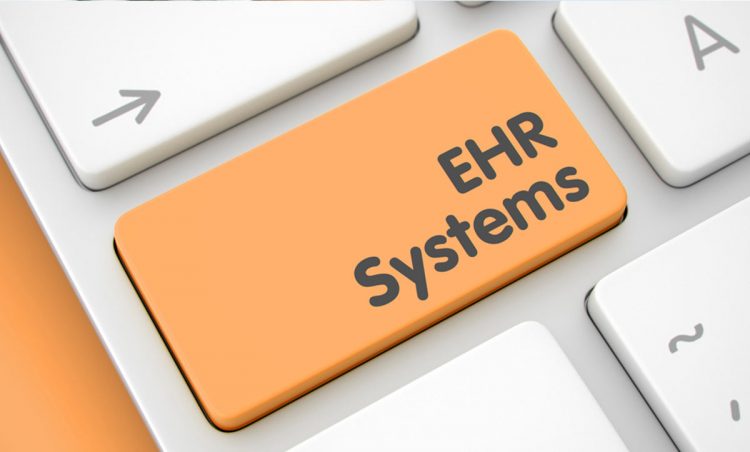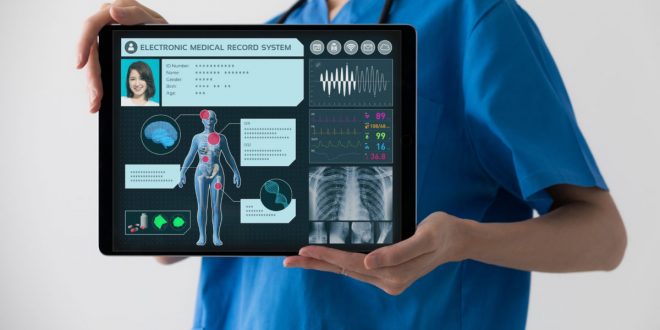An EHR (electronic health record) is a digital record system containing medical information. It makes healthcare data instantly accessible to any authorized provider, helping them to coordinate patient care and make informed medical decisions. It can contain general medical history, allergy information, lab results, treatment plans, and more. You likely know Electronic Health Record (EHR) systems can be beneficial, but picking the right one can be difficult. Several criteria distinguish EHR options and make them more suited to certain needs and usage.
Healthcare providers know that selecting a system for their practice sometimes isn’t a simple choice of one or the other. As you will see below, most EHR systems currently available do not come in a one-size-fits-all format. We suggest looking for the application that can most easily be adapted to your existing needs.
Why does your medical practice need an EHR?

There are many reasons why getting a cloud-based EHR for your clinic is a good idea. Here are the main points to consider:
1. Paper records have many shortcomings
They are expensive to copy and transport. Storage costs are growing exponentially as the years go by and it is all too easy to destroy them. On top of all those factors, paper records are difficult to analyze as they often include poorly legible handwriting and the paper itself degrades over time.
2. Accessibility is limited if you rely on paper
Tracking and retrieving older medical data can be a nightmare when just one clinic is involved, but what if the patient was treated in several locations? Electronic health records allow easy access to and navigation through one’s entire medical history by multiple healthcare specialists in different places. The end result is that patients benefit from high-quality medical services wherever they are.
3. Quality of care and patient safety

EHRs not only store full and accurate data about patients’ current issues but also should contain a summary outlining major health issues and past medications. It makes further treatment faster and more appropriate as doctors are aware of all allergies, past diagnoses, surgeries, and suchlike. When everything is electronic, there is a much better chance that tests and preventative measures will be undertaken in a timely manner.
4. Government rules and regulations
Although laws, standards, and norms vary from place to place, there is an undeniable trend towards digitalization. Some governments already require sensitive personal data (such as medical records) to be stored electronically or using multiple storage types. Even if it’s not yet mandatory in your case, it will be before long! Being ready for a potential shift such as this helps you stay ahead of the game and avoid a costly hassle down the line.
5. Enjoy additional benefits
EHR software can be so much more than just a patient record repository. It can handle scheduling, billing and save your team time spent on routine tasks. Just like any software, and one might say life itself, the more you put in, the more you get out.
What to consider when evaluating EHR software

Choosing medical software for your clinic is an important process as it will have a direct effect on business performance and the potential for success.
1. Before you start, look at how your clinic is currently operating. What are the processes? How will an EHR be used? It’s good to decide what workflow you will be upgrading or replacing with the new software before you start shopping around.
2. One of the first things we recommend looking at is data security. The last thing your clinic needs is a lawsuit coming your way because your patient’s data was corrupted or lost. Make sure the products you choose are compliant with local regulations, have end-to-end encryption, and an advanced backup policy.
3. The next thing to look at is technical support. What happens when things go wrong? Does the support team operate around the clock? Are they available via phone, email, or rapid-response live chat? An equally important concern is whether the vendor is there for you in the beginning. Always confirm that they assist with implementation, data migration, and general onboarding. Don’t forget to check whether all those services are included in the license cost. You don’t want any unexpected charges levied your way.
4. Your EHR will most likely be used by all kinds of people throughout the years. Try looking for a system that is user-friendly and easy to understand and learn how to use. Having an EHR that is a struggle to use is worse than not having any at all.

5. Once you’ve identified how you want to use your EHR, found secure options that offer great support and are user-friendly, it is time to look at the features. When evaluating this, pay attention to how often the vendor updates their product. Ensure that your choice gets upgraded and improved on a regular basis to meet the latest market requirements.
6. Most software companies will be happy to run a demo of the product and share marketing and sales materials with you. Additionally, you can ask for a trial license to see how it works in your unique situation.
7. Last but not least – consider the cost of the solution. We encourage you to look at the total cost of ownership rather than the license fee on its own. Check how much downtime the system typically has and how much that would cost your business. Look at support and training expenses, hosting, and renewing or purchasing additional licenses. Double-check all promos offered to you, and do not skip more expensive products right away as they might cost you less in the end.
Efficient data entry is the key to delivering excellent healthcare. It saves time for the practice, keeps you compliant, and reduces the number of mistakes made. We hope that today’s tips will help you find the best EHR solution for your medical practice.
To know more about EHR solutions for your clinic contact us at www.medesk.net/en/.
 Hi Boox Popular Magazine 2024
Hi Boox Popular Magazine 2024



